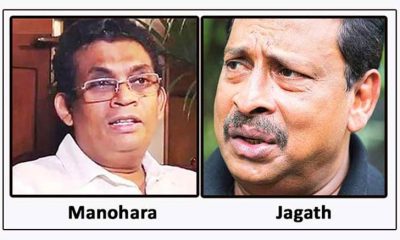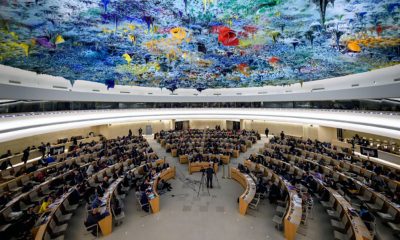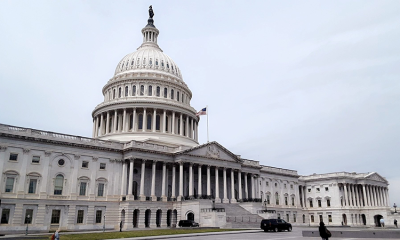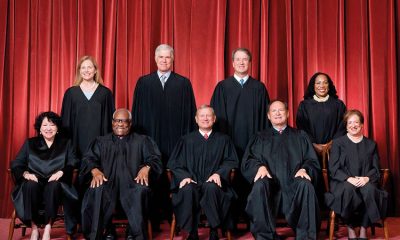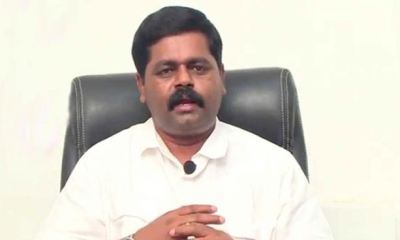Editorial
40th anniversary of Black July

The 40th anniversary of Black July which fell last week (July 23) was marked by some articles, telecasts etc. but relatively few reported commemorative events. This issue of the Sunday Island carries two very insightful articles by two regular correspondents, Rajan Philips domiciled in Canada and Uditha Devapriya in Colombo of what was the worst ever holocaust unleashed by Sinhala mobs. The J.R. Jayewardene government of the day chose to turn a blind eye to the horrors perpetrated that resulted in some of the best and the brightest of this country permanently emigrating. In addition Sri Lanka’s image was blackened globally and the scars of what happened remain to haunt this country to the present day.
Apologists claim that the terrible violence of July 23 and the days that followed was provoked by the terrorism of the Liberation Tigers of Tamil Eelam (LTTE) and like-minded organizations later annihilated by the Tigers. Undoubtedly terrorist events in the North that left dozens of policemen lynched on lamp posts and troops blown to bits in landmine ambushes provoked widespread resentment in the South. Comments in Colombo Tamil society of “our boys” giving it back to an undefined but clearly identifiable “them” certainly fueled the flames. But whatever the provocation, it was the obligation of the country’s president and his government to protect its citizen from the violence inflicted. History will judge, if it has not already done so, President J.R. Jayewardene, elected six years earlier with an unprecedented mandate, for this colossal failure.
There have been allegations that the president himself had given the nod to a senior minister in his government who made no secret of his anti-Tamil tendencies, to give that community “a knock.” But the situation went horribly out of control and that knock blew up into a pogrom, holocaust or what have you. Urged to call out the military soon after the violence began, there were reports that the commander-in-chief dragged his feet fearing that his orders may not be obeyed. In his first address to the nation after the horror was unleashed, the president focused on the immediate event that triggered the violence and did not offer a word of sympathy to the victims. However that be, the fact was that July 1983 became a landmark that tarnished Sri Lanka’s image globally, created a Tamil diaspora that funded the LTTE either willingly or through extortion, won support for the separatist cause and gave impetus to a civil war that dragged on for nearly three decades.
There is no need to labour the facts of what it cost this nation, on both sides of the lines, in terms of lives lost and treasure. A small island like ours with a population of around 22 million today has a military that is nearly 350,000 strong in the three armed services. Before the war we had a mere internal security force of a few thousand. Although we have not had any conscription in our contemporary history, the needs of the civil war made our forces grow, according to an internet report, to the 18th largest military force in the world. However that be, since the war ended there have been perhaps perfunctory efforts to downsize the military but budgeted defence expenses have been going up annually.
The upshot of the civil war, as Rajan Philips has noted in his regular column on this page, was Indian military involvement in Sri Lanka. The Indian Peace Keeping Force (IPKF) was deployed here in terms of the Indo – Lanka Agreement of July 1987 signed by President J.R. Jayewardene and Prime Minister Rajiv Gandhi. The IPKF was here for 32 months but failed to disarm the LTTE which it relentlessly battled losing 1,165 soldiers for whom a memorial stands close to Colombo. The fatalities on the Indian side was higher than the number of troops India had lost in two wars with Pakistan. Tragically, India which had trained and based LTTE fighters in its territory during the course of the conflict had to pay the price of losing Rajiv Gandhi who had by then ceased to be the prime minister but was campaigning to return to office when an LTTE suicide bomber took his life.
This newspaper scooped the correspondence exchanged between President Premadasa who succeeded Jayewardene regarding the withdrawal of the IPKF from Sri Lanka. While Premadasa armed the LTTE to fight the IPKF and the Tamil National Army which fought alongside it, he failed to secure its withdrawal during Prime Minister Gandhi’s tenure. The withdrawal was concluded when V.P. Singh became the prime minister of India after Gandhi’s electoral defeat. We published the first part of this exchange of letters the previous Sunday and conclude it today.
That good relations with India must be a cornerstone of Sri Lanka’s foreign policy is a reality that cannot be ignored. India proved to be very much a friend in need during the worst economic crisis faced by this country which had to declare bankruptcy earlier last year. Indian economic assistance and investments continue to flow in. While being grateful for the benefits accruing, we must grasp the reality that there’s no free lunch in this world.
Editorial
Justice must be balanced

Saturday 12th April, 2025
President Anura Kumara Dissanayake will appoint a committee to decide on instituting legal action against those named in the report of the Batalanda Commission, which probed extrajudicial killings, torture, etc., in the Batalanda detention centre, in the late 1980s, Leader of the House and Minister Bimal Ratnayake has said. The commission report has also been referred to the Attorney General for action, according to media reports quoting Ratnayake.
Parliament had a debate on the Batalanda Commission report on Thursday. The government MPs and their Opposition counterparts, true to form, traded allegations and abuse liberally, and it is doubtful whether their debate left the public any the wiser.
The Executive President is vested with powers to appoint committees like the aforesaid one, but such presidential action in respect of the Batalanda Commission report will be seen to be tainted with prejudice, for President Dissanayake is the leader of the JVP, which has prejudged those named in the commission report, especially their erstwhile chum, former President Ranil Wickremesinghe, and is calling for punitive action against them.
There is no guarantee that the presidential committee to be appointed will be different from the Parliamentary Select Committee that probed Chief Justice Dr. Shirani Bandaranayake and prepared the grounds for her wrongful impeachment in 2013. After all, the JVP/NPP has rejected out of hand the findings and recommendations of the Alwis committee, which has held two former high-ranking police officers accountable for their serious lapses which, among other things, led to the Easter Sunday carnage. So, matters concerning the Batalanda Commission recommendations should be left to the Attorney General although he is not completely independent of the Executive.
It will not be possible to build a strong case against Wickremesinghe on the basis of the Batalanda Commission report, whose recommendations lack specificity, according to legal experts. However, one cannot but agree with the JVP/NPP that all those who committed savage excesses in the name of counterterror operations to crush the JVP’s second uprising in the late 1980s must be brought to justice. Similarly, the heinous crimes the JVP committed must also be probed, and the perpetrators thereof must be made to face the consequences of their actions.
The Batalanda Commission report itself has revealed the JVP’s crimes. The JVP carried out hundreds of political assassinations, committed a large number of armed robberies including bank heists, destroyed state assets worth billions of rupees, such as Agrarian Service Centres, tea factories, Paddy Marketing Board storage facilities, buses, trains and countless CEB transformers, attacked military camps and police stations and grabbed a large number of firearms, most of which have not been recovered. The JVP unleashed mindless terror purportedly to extricate Sri Lanka from what it described as the tentacles of India, which it likened to an evil, giant octopus. Its reign of terror crippled the economy so much so that the then President Ranasinghe Premadasa offered to negotiate with it unconditionally. Today, the JVP leaders are eating out of the Indian leaders’ hands and entering into undisclosed MoUs with the ‘evil, giant octopus’, as it were.
All those who were involved in JVP terror in the late 1980s must be held accountable for their crimes, as former JVP presidential candidate and General Secretary Nandana Gunathilake has rightly said. Justice must not be lopsided, and both sides that unleashed mindless terror and committed brutal crimes in the name of counterterror, plunging this country into a bloodbath, must be made to face the full force of the law.
Editorial
Trump in a china shop

Friday 11th April, 2025
US President Donald Trump has made another U-turn––a historic one. He has suspended unprecedented tariff hikes he announced the other day; he vowed that he would neither pause nor waive them under any circumstances. The 90-day tariff reprieve he has opted for has gladdened many hearts and made stock markets soar across the word, but a global recession is looming with a fierce tariff war between the US and China intensifying.
Trump has jacked up tariffs on all Chinese goods to a whopping 125%. China has stopped dilly-dallying and increased its tariff on imports from the US to 84%. The White House is reported to have said those who do not retaliate will be rewarded. Trump may have expected the Chinese leaders also to bow and scrape before him, asking for a tariff reduction.
Meanwhile, President Trump will have a hard time repairing relations with the traditional US allies in Europe. He did not mince his words, when he said, while announcing the new US tariffs, the other day, that many Americans thought Europe was a friend but it had actually ripped off the US. He has shown, albeit unwittingly, that Europe cannot trust the US as an ally. Besides, Der Spiegel, a German magazine once revealed that the CIA had been operating a global network of 80 eavesdropping centres, including 19 listening posts in Europe.
The White House has sought to help Trump save face; it has claimed that his flip-flop is part of a strategy to further US economic interests globally. But the truth is otherwise. Trump got cold feet as stock markets tumbled the world over, and protests erupted in the US itself against his new tariff policy. Initially, he, true to form, chose to dig his heels in, and even coined a new word to disparage the critics of his tariffs. On Truth Social, he called them ‘panicans’. He said: “The United States has a chance to do something that should have been done DECADES AGO. Don’t be Weak! Don’t be Stupid! Don’t be a PANICAN. Be Strong, Courageous, and Patient, and GREATNESS will be the result!” He also said, “Be cool! Everything is going to work out well. The USA will be bigger and better than ever before. On Monday, he announced from the White House that “we’re not looking at” a tariff pause …” He also bragged in a Truth Social post announcing the 90-day tariff pause, that “more than 75 Countries” had called US officials seeking to strike new trade deals. But it is clear that he had to bite the bullet and suspend the tariff hikes. The EU has put its retaliatory tariffs on hold, as a result.
The suspension of US tariff hikes has brought immense relief to the developing countries dependent on the US as a major export destination, but prudence demands that they continue with their efforts to formulate strategies to ensure the survival of their fragile economies in the worst-case scenario. They had better consider the tariff reprieve at issue only an interval in hell, as it were, and brace themselves for what is to come after three months.
Trump’s strategy of using tariffs to subdue the world has yielded some unintended benefits, the main being that it has prompted other nations, including traditional American allies, to realise the risk of being overdependent on the US as a trading partner, diversify their trade relations as well as exports, and, most of all, look for an alternative to the US. The on-going efforts to adopt an alternative international reserve currency is bound to gain a turbo boost from Trump’s abortive bid to leverage America’s hold on the global economy to undermine other nations.
The world owes President Trump a big thank you—not for jacking up US tariffs and then suspending them but for having revealed how far the US is ready to go to further its interests at the expense of the other nations, including its allies.
Editorial
Cushioning tariff shock

Thursday 10th April, 2025
President Anura Kumara Dissanayake’s letter to US President Donald Trump over the US tariff hikes has received much publicity. The NPP government is reportedly sanguine about a positive response from Washington to its request for lower tariff on Sri Lanka’s exports, especially apparels. Hope is said to spring eternal, and there is nothing wrong with being optimistic, but it behoves Sri Lanka to prepare for the worst-case scenario. President Trump’s mind is so elusive that it is not possible to predict his moves, much less guess what he expects the smaller economies to do if they are to qualify for US tariff reductions, if any. He is eyeing mineral resources in Ukraine in return for US military aid to that war-torn nation. Sri Lanka has no such resources to offer. Is the Trump administration trying to pressure it into going out of its way to help further Washington’s geostrategic interests in this part of the world?
China has retaliated by increasing tariffs on imports from the US thereby aggravating global economic uncertainty. Washington says its tariff increases are reciprocal, and therefore the countries affected by them may think they can gain relief by reducing duties on US exports. But the question is whether such action will help the US rectify its massive trade imbalance significantly. The demand for American exports will not increase substantially even if countries like Sri Lanka lower duties thereon, for factors such as cost and quality basically drive demand. Imports from the West, especially input materials, are not in high demand in the developing world because of the availability of cost-effective alternatives.
So, the Trump administration is likely to insist that apparel producing nations like Sri Lanka import commodities such as cotton fabric from the US so as to give a fillip to the American industries. This is what US Ambassador Julie Chung told former Minister Mano Ganeshan at a recent meeting, according to a report we published on 27 March. Such a move is bound to increase the cost of Sri Lankan apparels because US products are very expensive and will adversely affect the competitiveness of Sri Lanka’s apparels in the global market.
President Trump is hopeful that ‘jobs and factories will come roaring back’ because of the tariff hikes at issue, but he does not seem to have factored in the high cost of production in the US and increases in the prices of imports due to high tariff hikes. Tech analysts have pointed out that Apple iPhone prices would soar if they were to be made in the US, and even if the existing supply chains are maintained, their prices will increase substantially. The same may hold true for other commodities, whose prices remain low in the US at present owing to cheap labour and lax environmental laws in the other countries where they are produced.
The countries hit by the US tariff increases have adopted different strategies to cushion the blow from the drastic US action, which has led to a global stock market rout, and sparked protests in the US itself. India is seeking to strike more trade deals with other nations, according to Indian Finance Minister Nirmala Sitharaman, who says such measures have become necessary in view of prevailing global uncertainty. Sri Lanka can learn from how India is trying to mitigate the impact of the US tariff hikes.
Prof. C. A. Saliya, a senior banker turned academic, has pointed out in his latest column, Out of the Box, in this newspaper that if the emerging economies get their act together, they may be able to turn disruptions caused by the isolationist, protectionist, and coercive US trade practices into an opportunity to diversify their exports and trade relations, invest in technology and undertake structural reforms to ensure their economic resilience.
Meanwhile, the formulation of Sri Lanka’s strategy to navigate the new US tariff regime should arise from a tripartite effort if it is to be effective. The government, industrialists and workers should be represented in discussions on the issue. It is high time trade unions shifted their focus from their demand-oriented activism to the pressing need to play a crucial role in protecting the domestic industrial sector. The government should do everything in its power to help industrialists keep costs manageable, ensuring the competitiveness of their products in the global market, and the captains of industry must carry out their export operations in a transparent manner without resorting to sordid practices such as parking most of their export proceeds overseas.
-

 Business6 days ago
Business6 days agoColombo Coffee wins coveted management awards
-

 Features7 days ago
Features7 days agoStarlink in the Global South
-

 Features2 days ago
Features2 days agoRobbers and Wreckers
-

 Features4 days ago
Features4 days agoSri Lanka’s Foreign Policy amid Geopolitical Transformations: 1990-2024 – Part III
-

 Features7 days ago
Features7 days agoModi’s Sri Lanka Sojourn
-

 Midweek Review4 days ago
Midweek Review4 days agoInequality is killing the Middle Class
-

 Features6 days ago
Features6 days agoSri Lanka’s Foreign Policy amid Geopolitical Transformations: 1990-2024 – Part I
-
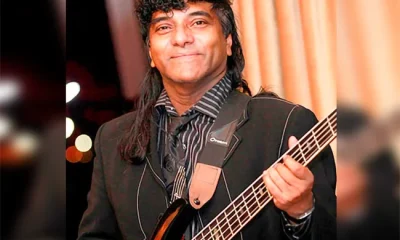
 Features5 days ago
Features5 days agoA brighter future …


